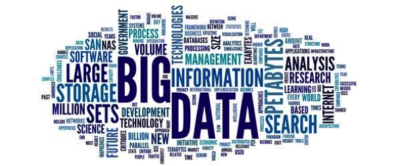SOLEP Conference "Big Data Analytics and Evaluation"
Digitalization is disrupting all economic sectors - including the public sector. What use is big data in public decision-making? What are the challenges in terms of personal data protection and ethics? This was the topic of the conference "Big Data Analytics and Evaluation" held on Monday, 4th of March, at the Chambre de Commerce, and organised to mark the 10th anniversary of SOLEP asbl.
Accelerated humanitarian response, more targeted development assistance
In a first presentation, SOLEP depicted an overview of the possibilities in terms of massive data analysis for public decision-making.
They can be found in particular in humanitarian aid and development cooperation, in countries where public statistics are missing and where the penetration rate of mobile telephony is high. Access to mobile phone users' call logs makes it possible to identify and locate epidemics outbreaks and food crises in near-real time and to react faster than before. In relation to development, two well-known innovations make it possible to estimate (more precisely: to predict) the income level of populations and to map them very accurately. On the one hand, individuals' call logs allow them to estimate their income levels according to their number of international contacts, international calls, the proportion of calls received/done, in off-peak or peak hours, etc. On the other hand, the use of millions of satellite images through deep learning also makes it possible to estimate and map average income - on a village level for instance - from various variables appearing on images seen from the sky.
Sentiment analysis on social networks
In more developed countries, sentiment analyses on social networks are increasingly practiced. In this type of analysis, algorithms classify messages posted on Twitter, Facebook or other networks using a scale, for instance, from -4 (message with very negative content) to +4 (very positive). This has been done in the Netherlands in particular, to estimate consumer confidence. Another example is a project that won the World Bank's "Big Data Innovation Challenge", which identified reasons behind the protests that shook Brazil during the Rio Olympic Games in 2016. Social networks, and especially Instagram are also a source of hashtags and images; and here, new possibilities for exploration exist too.
Not-so-new approaches
Finally, the SOLEP conference was an opportunity to show that predictive and descriptive analyses associated with massive data are not so new. In addition, these tools can be applied more modestly to "traditional" databases, such as the OECD's PISA database, administrative databases, and even "small data" (a whole session was dedicated to predictive and descriptive small data analysis).
In terms of public decision-making support, collaboration between data scientists and other experts in economic and social sciences is essential. Ultimately, ethics and data protection must remain at the heart of the concerns.
Related documents
1. Session 1:
Big data analytics in evaluation:
where do we stand and where
are we headed?
(download on image)
2. Session 2:
Artificial Intelligence ethics
and data privacy around the globe: progress and remaining challenges
Click on image to download
3. Technical workshops:
3.1 Prediction modelling as an evaluation tool
3.2 Social media intelligence in evaluation and research
3.3 The use of satellite imagery and signals to support decision-making



